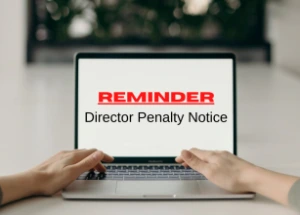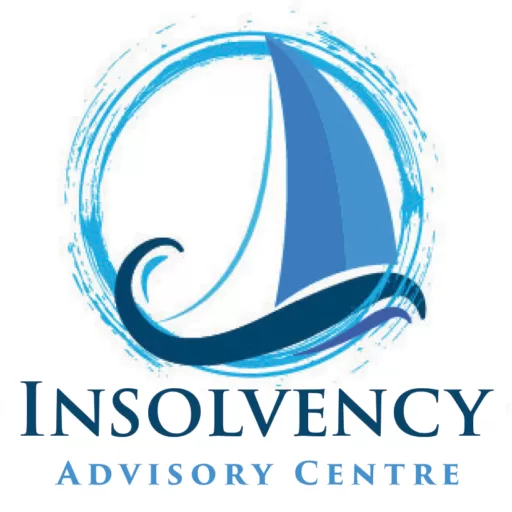Director Penalty Notices: Things You Need to Know
Directors of businesses are usually protected behind corporate structures and don’t face the liability of the company’s debts. However, the Australian Tax Office (ATO) has the right to pursue the company director’s personal assets if the company director’s debt obligations to the company haven’t been met.
 This is done by serving a Director Penalty Notice (DPN) by the ATO, and if you receive this penalty notice, it is essential to act quickly, or the ATO can seize your personal assets. It is advisable to seek professional help to handle this serious issue. Moreover, it is also essential to be aware of the DPN, ways to avoid it, and steps to take if you receive a penalty notice.
This is done by serving a Director Penalty Notice (DPN) by the ATO, and if you receive this penalty notice, it is essential to act quickly, or the ATO can seize your personal assets. It is advisable to seek professional help to handle this serious issue. Moreover, it is also essential to be aware of the DPN, ways to avoid it, and steps to take if you receive a penalty notice.
What is a Director Penalty Notice?
The Director Penalty Notice (DPN) is a penalty notice served to the company’s director by the ATO for not meeting the following obligations:
- Super Guarantee Charge (SGC)
- Wine Equalisation Tax (WET)
- Luxury Car Tax (LCT)
- Goods and Services Tax (GST)
- Pay As You Go (PAYG) withholding.
The company needs to pay its ATO tax debt immediately. Otherwise, the company director can be personally liable for the company’s debts through a DPN.
There are two kinds of Director Penalty Notices, which are as follows:
Non Lockdown Director Penalty Notice
This penalty notice is issued to the company that hasn’t paid the tax liabilities but reported them to the ATO within three months of the deadline. In the non-lockdown DPN, the director of the company might be able to avoid being personally liable if the company:
- It puts itself into liquidation,
- Appoints a voluntary administrator, or
- Negotiates an arrangement to make the payment or pay off the debt.
- This must be done within 21 days of receiving the DPN.
Lock Down Director Penalty Notice
This DPN is issued to the company that hasn’t paid the tax liabilities and failed to report it to the ATO within three months of the deadline. The only way the company director can prevent personal liability in the lockdown DPN is to ensure the company pays the debts within 21 days of receiving the DPN.
Penalties of Non-Compliance with DPN
If the company director receives a penalty notice but takes no steps to resolve the situation, the director will be personally liable once the DPN expires. The ATO would proceed to recover the SCG or tax debts from the company’s director.
The ATO also has the power to take other actions, like giving garnishee notices. This can be done whether or not a Director Penalty Notice is issued.
In some cases, the associates of the director and the director of the company would not be allowed to get credits from the amounts withheld in their own personal tax returns when the company neglected to pay the withheld amounts that were due to the ATO.
The directors of the company, as well as their associates, may also be held liable for non-compliance with PAYG withholding tax.
How to Avoid Being Served a Penalty Notice
The best way to avoid getting a DPN is not to allow the ATO to issue the notice. Prevention is always better than cure. The main aim of the DPNs is to ensure that the directors of the companies pay the taxes, apply for returns, and take the necessary actions if the taxes aren’t paid.
Here are some of the things you can do to avoid getting a DPN:
- Constantly monitor the company’s financial position and ensure that the monthly and quarterly BAS returns are lodged promptly.
- Ensure your address details with the ATO and ASIC (Australian Securities and Investments Commission) are updated to prevent situations where you don’t receive any notices.
- If the company cannot pay the debts for superannuation and PAYG, contact an accountant to seek advice.
Monitoring and taking the right actions can help you avoid a situation where you could be personally liable for the company not paying its debts.
I Have Been Served a Penalty Notice from the ATO; Now What?
If the ATO has served you a Director Penalty Notice, there are a few options to get the penalty discharged. If the company fails to report the unpaid debts to the ATO within three months of the deadline, your only option is to pay the debt to discharge the penalty.
In case the company reports the unpaid debts to the ATO within three months of the deadline, here are some steps to take after getting a DPN:
- Pay the debt in full
- Get an administrator appointed to the company
- Liquidate the company
It is essential to take action within 21 days of being served by the DPN. If you don’t take any action, you will be personally liable to pay off the company’s debt in full. This means legal action would also be taken against you by the ATO.
Remember, the countdown starts when the DPN is posted, not the day you receive it. This means you might have less than 21 days to take action.
Can a DPN be disputed?
Only a few defences are available for the company directors receiving a penalty notice. The only ways you might be able to dispute a DPN are as follows:
- Because of illness or other appropriate reasons, you were not able to participate in the company’s management or
- You took all necessary steps to make sure the company paid the debts, tried to appoint an administrator, or
- started winding up the company.
You can highlight these defences if legal actions have commenced against you due to a DPN.
Andrew Bell Insolvency Advisor
Let’s Talk
With over 30 years of experience in debt solutions and Insolvency in Australia, Andrew can find a solution for you.
“Nothing is more satisfying to me than knowing that I’ve helped someone get back on their feet by guiding them through the insolvency process. Rest assured, you’re in good hands with me as we solve your financial problems together.”

